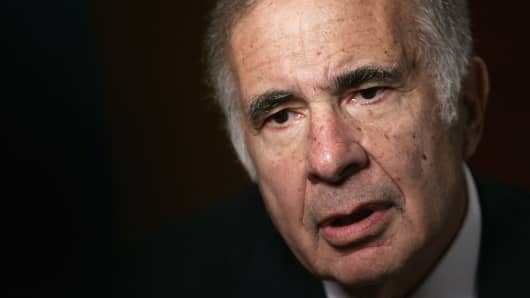Nuance Communications thinks of itself as the Switzerland of the ultra-competitive technology industry. Smartphone rivals Samsung, Apple and BlackBerry use its voice-control technology to power their virtual assistants, as do competing carmakers including Volkswagen, Ford and BMW.
"Nuance over the years has just evolved to be very successful at that and we treat each partner uniquely," says Paul Ricci, Nuance's chief executive of 13 years. "I think it's that combination of rich technology and our ability to tailor and customise it to their particular needs that has made us enduring and successful in those partnerships."
However, Mr Ricci is about to experience a quite different relationship, one in which he might find it rather harder to be neutral.
(Read more: Samsung seeks 'iPod moment' with smart watch launch)
Carl Icahn, the activist investor, has been building a stake in Nuance since April and last week made a financial filing that signalled an intention to move from a passive to activist position in the company.
"Let the fireworks begin," wrote analysts at investment bank FBR on Friday, suggesting that Mr Icahn might push for board representation, divestitures and perhaps even the replacement of Nuance's chief executive.
In an interview with the Financial Times – days after Mr Icahn increased his stake to above 16 per cent but before he indicated his change of tactics with Friday's 13D filing – Mr Ricci says that he has had "very positive conversations", including in person, with the 77-year-old corporate raider.
"They've been affirming of the general direction of the company strategy," he says of the discussions with Mr Icahn. "We expect large shareholders to have a voice and we welcome that. We just try and stay focused on building value over the long period of time."
(Read more: The smart watches stealing a march on Apple and Samsung)
Mr Ricci's long-term vision for Nuance has evolved over the years.
"When we started this in 2001, we thought this was a decade-long journey – and it took about a decade to make speech [technology] highly reliable," he says, referring to its products such as the Dragon Naturally Speaking dictation system and automated contact-centre services.
"In the interim we realised that the real solution we wanted was to have the computer truly understand you and act upon your intentions, so we began investing in natural language processing."
More from the Financial Times:
Health apps run into privacy snags
Big Mother is watching you
Venture capitalists weigh in on MyFitnessPal
This technology will understand not only what people are saying but what they mean and can predict what they might need before they even know they need it. Where IT today can still confuse and confound its users as much as it enables them, Mr Ricci hopes that soon it will "listen and understand".
Although Nuance and competitors such as Google Now are already working towards this vision, it will take some time to achieve.
"I think we have another decade in front of us to develop virtual assistants that achieve the kind of fluency and capabilities . . . to really do what you want them to do," he says.
In the meantime, Nuance's business is facing a difficult transition. Like many software companies, it is moving from selling upfront licences to cloud-based services, charged through monthly contracts or by usage.
(Read more: Carl Icahn says he's taken a position in Apple, says stock undervalued)
This disruption contributed to Nuance missing Wall Street estimates in its two most recent quarters. Despite announcing a $500m share buyback in April, its shares are down around 15 per cent in the year to date.
Nonetheless, Mr Ricci is asking for patience, saying that the shift will go on for "some number of years" but fiscal 2014 will "start to see improvements in our organic growth".
Despite suggestions from analysts that Mr Icahn might soon try to shake things up, Mr Ricci is planning for "evolution" rather than revolution, intending to retain its three main businesses – mobile, healthcare and enterprise – "for the foreseeable future".
Yet even as Apple and Samsung prepare new product launches this month that will put Nuance's behind-the-scenes innovations back in the limelight, the company faces the threat of having to compete with some of its biggest partners.
Apple has poached several employees from Nuance's Boston headquarters, prompting speculation the iPhone maker is building speech-recognition services of its own.
Mr Ricci will not comment on Apple directly but says that other partners have made similar attempts to replicate Nuance's services in-house, only to return as a customer later on.
Whether Mr Icahn and Mr Ricci become long-term partners or short-term opponents remains to be seen, especially after Nuance last month introduced a "stockholder rights plan" – better known as a "poison pill" – to fend off anyone who tries to build a stake of more than 20 per cent without board approval.
But one area where Nuance's chief executive is determined not to be a neutral observer is in the "paradigm shift of building virtual assistants".
"They're going to change how you and I and everyone else interacts with systems," he says. "We're not going to be the only people doing that but we're going to be an important participant in a really exciting flow of technologies."


